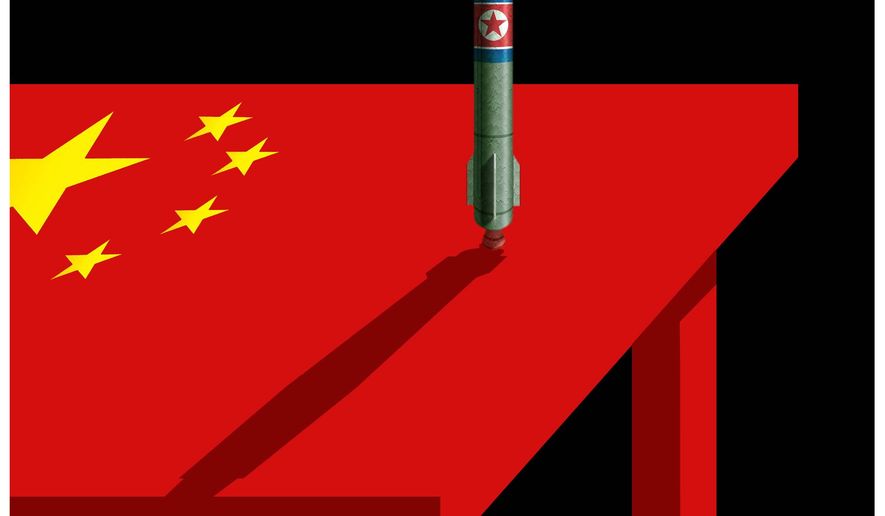OPINION:
Assuming Kim Jong-un has — so far — agreed to “complete denuclearization,” whatever that means, in exchange for the suspension of U.S.ROK military exercises. Where do we go from here?
Well, get ready folks, because there is nothing quite like negotiating with an Asian country, whether friend or foe.
Because I’ve spent much of my career “doing” arms control and other national security-related negotiations — both bilateral and multilateral — I can offer some suggestions as to what we might expect next from Mr. Kim, et al.
I say, et al, because the giant in the room — whether we want it or not — is China.
First: The North Koreans will never “give” us their nuclear weapons and/or their means to deliver them.
Second: They may — if and as these discussions continue — suggest that they will transfer custody of their nukes to China, to hold in some kind of “escrow” arrangement.
Hence, China gets directly into the negotiations as a full partner, and making it a “two to one” game with all kinds of other equities involved.
Third: A dozen years ago, I actually suggested arms control discussions with China. The logic — and risks involved — with such negotiations remain much the same. Here are the core dynamics of dealing with China in national security matters:
• We should begin with the proposition that if we decided to negotiate arms control agreements with China we should assume the same degree and intensity of deception we got from the Soviets. China, like the Soviets, won’t want us knowing much about their military capabilities, especially their strengths or weaknesses.
• But, does this mean that arms control with China is a fundamentally bad idea for us? Maybe not. There are dramatic differences between our present relationship with China and our relationship with the Soviet Union during the Cold War.
• In fact, a whole different set of incentives drives the basic relationship between the United States and the People’s Republic of China: They can be summed up in one word — trade. There never was an economic relationship with the Soviet Union during the Cold War because the Soviets never produced anything we or anybody else wanted to buy. Our “relationship” then with the Soviets was based solely on a military and political competition for superpower status and influence in Europe, and not at all on an economic symbiosis. Put simply: We didn’t sell 747s to Russia and we didn’t buy consumer goods from them.
• Contrasted with this, we have hundreds of billions of dollars of trade with the PRC: We are their biggest world market — by far — for the stuff they make. And they know it. In fact, it is the main reason we are so important to them: In short, they want and need our business, and we want and need theirs. It is, quite simply, the most important part of our relationship with China.
• This kind of relationship offers the best possibilities for “real” arms control, the kind that actually saves money and allows “market economies” a real choice between guns and butter. While the PRC economy still has deep elements of state control, especially in banking, the basic forces that drive it are supply, demand, costs and the profit motive.
• What other issues, could be part of a comprehensive arms control and national security dialogue between the U.S. and the PRC?
• Several come to mind, e.g., Taiwan and North Korea. And, there are other regional incentives that could serve as reasons for the PRC to behave differently on a whole range of issues that interest us, including their economic and monetary policies.
To this list I would add the militarization of the South China Sea as part of the mix — if such discussions actually got underway as a result of Mr. Kim’s proposal to “transfer” his nukes and missiles to China.
The main point here is that dealing with Mr. Kim in the context of his nukes and missiles is really a smaller part of a much larger puzzle that directly involves China, and there will be no way around this reality.
The Chinese lost a million men in the Korean War and they will be forever the main player in security matters in this region of the world, especially having to do with the Korean peninsula.
So, if we’re really serious about the “situation” in North Korea, we had better start looking at a much bigger picture for the “deal.”
• Daniel Gallington served through 11 rounds of bilateral negotiations in Geneva as a member of the U.S. Delegation to the Nuclear and Space Talks with the former Soviet Union. He also negotiated with several Asian host countries in the context of military related relationships with the U.S.
• Editorial note: The bulleted material comes from https://www.pressreader.com/usa/the-washington-times-daily/20061112/281981783089657




Please read our comment policy before commenting.